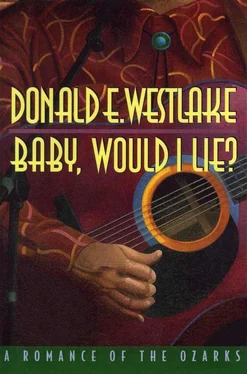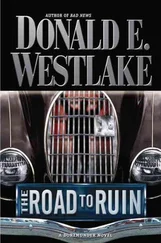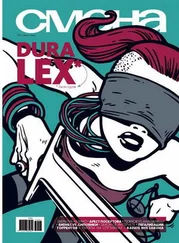“So people who unpack are stupid, is that it?”
“I don’t say that,” Jack objected. “I don’t even believe it. But I do believe I have the jump on them.”
Sara shook her head. She hadn’t finished her food, but she clearly wasn’t eating any more. She sipped wine, sighed, frowned, and said, “Okay, I can see what’s wrong with you , but what’s wrong with me ?”
“Nothing,” he said, wanting to make nice. After all, they had to share a bed tonight.
But she wouldn’t accept it. “There must be something,” she said, “or I’d find some normal guy, some regular member of my tribe to hang out with. But here I am with the Cheshire cat. Why?”
“You want an answer?”
“Yes, please.”
She seemed serious, so he was, too. Reaching across the table, taking the fork out of her hand and putting it on her plate, then taking her hand in his, he said, “Then I’ll tell you. I’m sorry, but the diagnosis is not good. After a close look at the X rays and the test results, I’m afraid I have to tell you the reason you’re staying with me is because you love me. Sorry.”
“Hell,” she said, squeezing his hand in hers. “I was afraid it might be something like that.”
Ray approved of Cal’s choice; the Trend girl was going to be exactly right.
The whole bunch of them were headed over to Forsyth together in the bus, Ray and his assistant Honey Franzen and his musical director Lennie Elmore and the musicians and Ray’s manager Chuck Wagner and his regular lawyer Jolie Grubbe, who couldn’t understand why he wanted a reporter aboard. “I need a sympathetic press,” Ray explained as they were boarding the bus in front of his house out at Porte Regal, the bus already half full of his people, none of them — happily — seeming to be drunk yet, at seven-thirty in the morning.
Jolie Grubbe, a tough lawyer of forty-something, a great big fat woman with no softness to her at all , said, “Sympathetic press? Are you crazy?”
“Probably. Get aboard the bus, Jolie.”
“There’s no such thing as a sympathetic press, Ray, you know that.”
“Bus.”
“Okay, okay.”
That big thick body heaved itself up the steps into the bus, Ray following. Jolie thudded into the front window seat on the right and Ray sat beside her. Across the aisle, according to his prearranged plan, Lennie Elmore occupied the window seat behind the driver, with Honey Franzen next to him. The rest of the guys were distributed in the seats behind him, taking up two-thirds of the bus’s interior, with the rear third holding a John and a galley kitchen. (This, when they toured, was the band’s bus. Ray would be in the other bus, with the bedroom and the shower and the other kitchen and the closets for costumes: his dressing room on wheels.)
Settled in her seat, recovered from the effort of climbing up into the bus, Jolie took up the theme again: “ Trend isn’t gonna give you sympathetic press, Ray,” she said. “ Trend is a lot of smartass New Yorkers; they blow their noses on shitkickers like you.”
“I have my reasons, Jolie,” Ray told her in the deadpan tone of voice that meant it was time to change the subject. He eyeballed her. “Okay?”
“Whatever you say,” Jolie said, miffed. As though he gave a shit.
Now they were all aboard except the girl reporter. The big silver bus with RAY JONES ON THE ROAD in bright red letters on its sides rolled slowly along the winding roads from Ray’s house through the golf course and the condos and the spread-out ranch-style houses to the main gate of Porte Regal and through, then pulled in at the parking lot of Jjeepers! the family restaurant just beyond the guard shack, where Cal had arranged that the girl reporter — Ray couldn’t seem to remember her name — would meet them.
And there she was, bright-eyed and bushy-tailed, coming out of the air-conditioned restaurant with her big brown leather shoulder bag bouncing on her hip the instant the heavy bus, elephantine and graceful, eased on down into the parking lot. A good-looking woman, Ray noted, if you wanted somebody who could take dictation, but she didn’t look as though she’d take dictation , if you follow. Ray watched her cross the blacktop toward the bus, saw the intelligence and the eagerness and the professionalism and the big-city veneer, and knew she was going to be perfect.
Cal came down the aisle, like he was supposed to, and was there when the driver opened the bus door for the girl reporter to climb aboard. “Hi, Cal,” she said, springing lithely up the steps. “Thanks again.”
“Oh, sure,” Cal said, and gestured at Ray, saying, “This here’s Ray Jones. Ray, this’s Sara Joslyn, from that New York magazine.”
“H’are ya,” Ray said, and stuck his hand out, and hers was cool and dry and bony. They exchanged strong grips and she said, “I appreciate this, Mr. Jones. I know this is a tough time for you.”
“Our seats are back here,” Cal said, taking her arm, nipping that interview in the bud, and away they went.
That was the point, or part of it. Whatsername — Sara? — was to be permitted to hang around but not to get chummy. Not real access , not to the extent she would ever get the idea she was being set up, since in fact she was being set up. So, for today, she had just this minute been as close to Ray Jones as she was going to get.
The bus coughed and groaned and got itself rolling again, turning left onto 165 south, heading down toward Table Rock Dam to avoid all that traffic mess back up in Branson. Jolie wanted to spend their bus time talking about her latest dealings with Leon “The Prick” Caccatorro, the IRS guy; she was the one negotiating with the son of a bitch. The negotiations were necessary because, as it turned out, Ray had taken some wrong advice here and there, and he’d tuned out once or twice when he really should have been listening, and the way it wound up, all of a sudden he owed the feds so many millions of dollars, they could probably afford another senator or two if they got it all out of him.
Which, naturally, wasn’t going to happen, mostly because he didn’t have that kind of money. Maybe it had passed through his fingers at one time or another, but it was gone . So what was happening now was, like any other mob operation, the government was making itself Ray Jones’s partner. From now on, any dollar he earned, some of it would to go to his agent and some to his manager and some to his lawyer and some to his ex-wife and some would go to the IRS. What was being negotiated now was just what percentage of his income was going to be the feds’ blood money and how long this unwelcome partnership was going to last.
There was a certain amount of pressure on Ray to get these negotiations done and over with, because until they were behind him, he didn’t know what he could afford or even whether or not it would be worthwhile to go on working. But there was also a certain amount of pressure on the IRS, which helped to even things out. The pressure on the IRS was caused by the well-known uncertainties of both life and fame. If Ray Jones were to die, or if the fans were to turn against him (it had happened to others), the government just might find itself reaching for a slice of pie in an empty pie tin; better for them to make their deal while he was still riding relatively high, make their projections from this year’s earnings, not knowing what next year’s earnings might be.
And now, as if all of that weren’t complicated enough, they had this damn murder trial to put up with. For all the IRS knew, they were negotiating with a guy who’d be sniffing the state’s cyanide a year from now, which made Leon “The Prick” Caccatorro quite visibly nervous. Good.
Читать дальше







